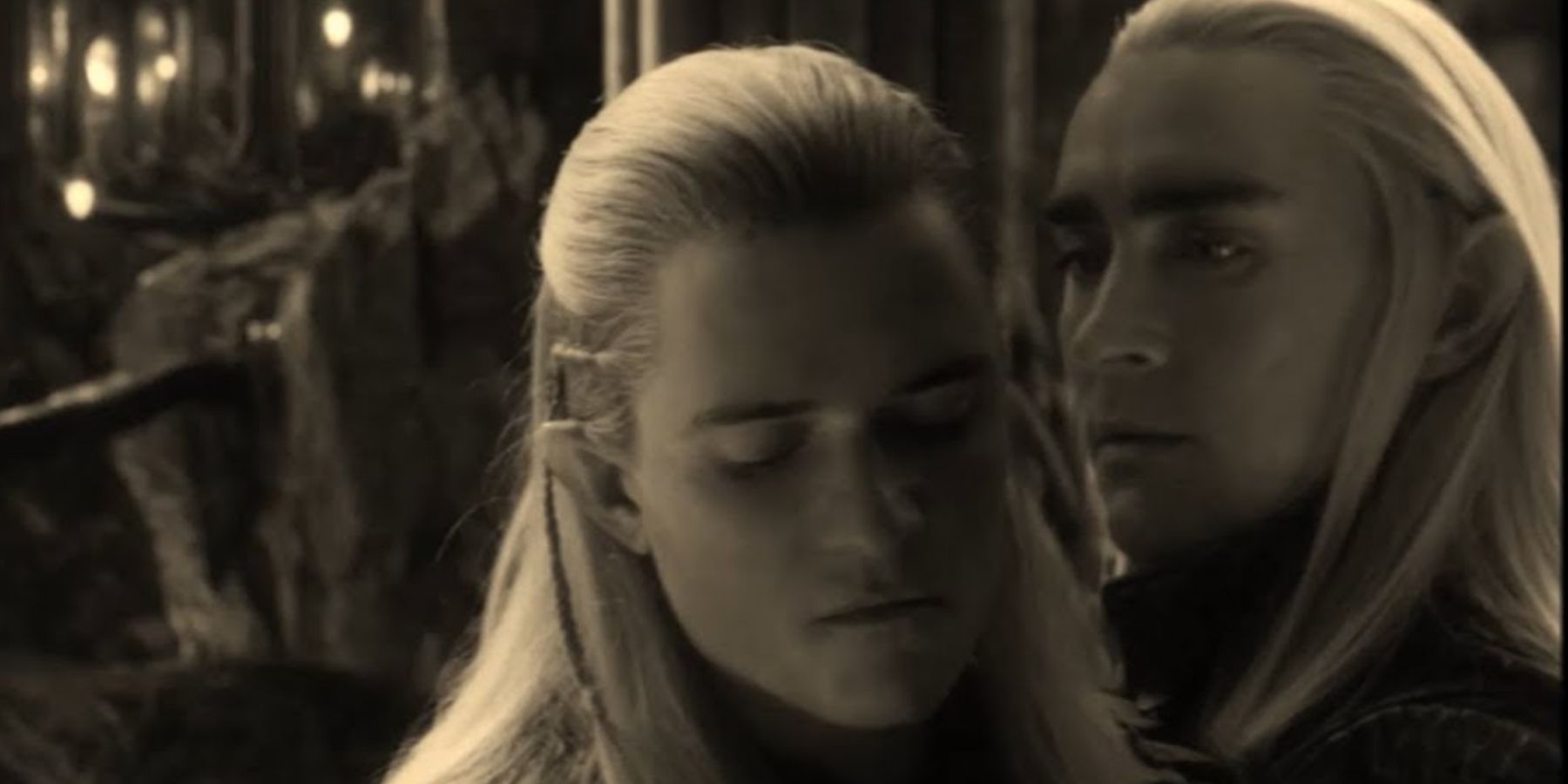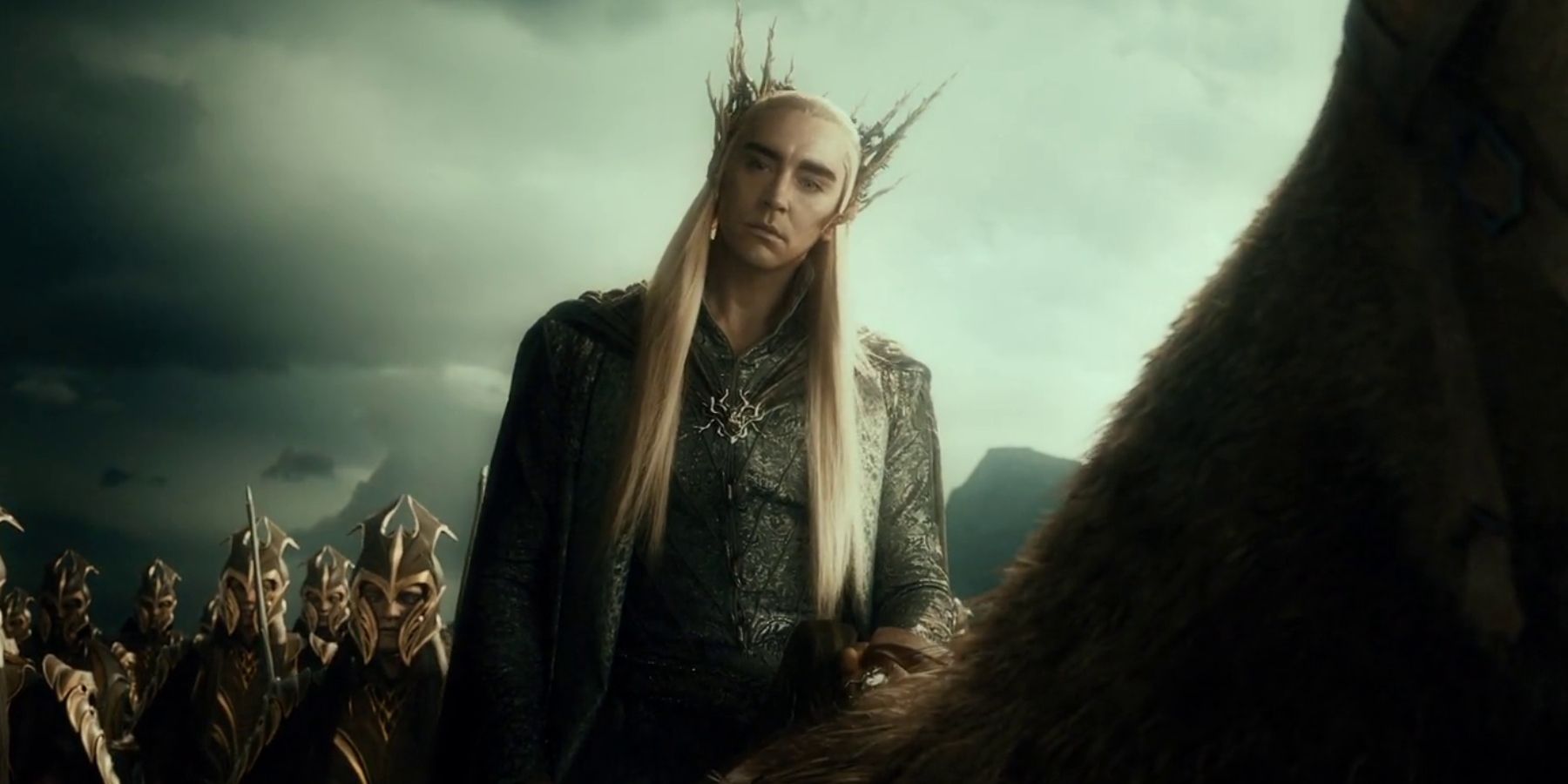By far, one of the coldest and most unreasonable characters in The Hobbit trilogy is Thranduil, the elven king of Mirkwood. There are downright evil characters, like Azog the pale orc, and the Necromancer, who turns out to be Sauron himself, but these are antagonists, who are meant to be menacing, whereas Thranduil is on the good guys' side, yet he still displays elements of real cruelty towards those he is supposed to love, and dismissal of those in need of help, unless it will benefit himself in some way.
Thranduil has all of the same self-righteous arrogance that Thorin has, which is, in part, why they clash so much, but Thorin’s comes from a traumatic past of a broken family as he watched his grandfather slaughtered, and lost his father, his homeland, and many of his kin who were burned alive. So where does Thranduil come from, and what terrible things could have happened in his past to make him so unfeeling, so shut off from the world, and so hard-hearted, even towards his own son?
There are some major clues throughout the films that lead fans to read into Thranduil’s back story, and what made him the way that he is. The first scene is the one in which he is goading Thorin in his dungeons, trying to get the dwarf to reveal the true purpose of his quest. When Thorin reveals that he and his 13 companions are traveling to try to reclaim Erebor, Thranduil suddenly poses that they strike up an alliance, because he wishes to claim back the white gems of Lasgalen, a very rare and beautiful set of jewels that were crafted into a necklace on his behest, many years prior.
These gems are believed to have been a gift for his wife, Legolas’ mother, who was said to have been the light of his life. Seeing as Legolas’ mother is not a character featured anywhere in Tolkien’s lore, it is clear that she died, and probably quite tragically, and so this necklace is more than a mere trinket to Thranduil, it is an honor to her memory, which is why he is so ruthless when Thorin says he will not part with any treasure, because Thranduil turned his back on Thorin's people when Smaug came and they needed him the most.
The next clue comes from Legolas, when he and Tauriel are staking out Gundabad to bring warning back to the others of the evil that lies in wait. Legolas is clearly struggling, having just watched Tauriel, whom he loves, be banished, and defied his father by going with her. The audience has already seen several examples of the tense relationship between the father and son at this point, but this is the first time that Legolas seems to actually open up about it, and even then it’s only briefly as he looks at the fortress and says “My mother died there. My father does not speak of it. There is no grave, no memory. Nothing.” The fact that Thranduil is so broken that he cannot even mention her, cannot bring himself to face the pain of her parting, or have a place to mourn her speaks volumes about the coping mechanisms he must have had to undergo in order to live with the tragedy. No wonder he is cold to the world, because when Legolas’ mother left it, she took all of the joy and the love he felt with her.
It is only when Thranduil does finally get involved in the war, does finally engage in the wider problems of the world beyond himself and his grief, that the audience can see him begin to reconnect with his thoughts and feelings, rather than locking them away. The Battle of the Five Armies reawakens Thranduil in many ways, because he sees the loss and the blood of his people who are fighting for something just because they believe it is right, and because they have faith in a new day and a better world. He is also (eventually) touched by the love that Tauriel and Kili feel, and the impact of Tauriel losing the fight against Bolg and watching Kili die in front of her has. This brings back some of his own loss and trauma and allows him to face them and to accept them as a part of himself so that he can finally start healing.
All of this brings him to the realization that he has been shut off from everyone around him, and in doing so, has ruined his relationship with his son. This is what brings him to the revelation that he needs to open up to Legolas before it is too late. He tells him “your mother loved you, more than anything. More than life”. This is sad and bittersweet because it suggests that his mother possibly died protecting Legolas from some danger, giving her life for her sons, which would explain why Thranduil is so seemingly resentful and cold towards Legolas in the first place. It also has a really heartfelt but angry emotion contained within, because it hints that Thranduil feels betrayed by her and her decision to give her life for her sons, because she loved the boy more than Thranduil, and because she left him as if it were a conscious choice.
Once Thranduil has released this pain that he has been carrying, he is able to reach across the void to Legolas, and to finally start building a bond and a bridge that should have been there long ago, telling his son about Aragorn: “the father was a good man, but the son may grow to be a great one.” This is also an acknowledgment of Thranduil that he has done wrong, and that he hopes to make amends by trusting Legolas to go and live a full life away from Mirkwood.



